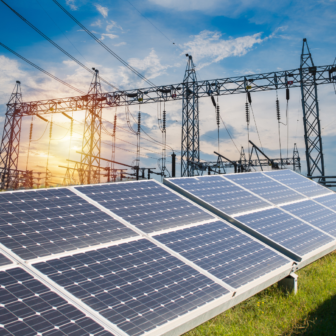Cross-Posted from: HERE
I’m pretty sure that from now until the Senate votes on a climate bill, Senate Majority Leader Harry Reid will look at what he’s going to have to do to get 60 votes for a measure, and add 30 seconds to his schedule every day where he takes a pillow and cries into it. The Senate is where legislation goes to die. As elated as I was at passing the Waxman-Markey bill out of the House, it hit me pretty fast that this was going to get ugly.
Environmental groups have been talking about the idea of strengthening, but in the Senate what kind of grassroots pressure and mobilization would that really take? What kind of bill would we end up seeing if we had “business as usual” activism on this bill? The first thing I want to do is talk what is necessary for a much stronger bill, and I must admit that this has long odds considering we came up short in the easier of the two chambers. Next, I’m going to show you what compromises would have to be included in the bill in order to reach 60 votes assuming the level of support by the American public is as dull as it was in the House.
Getting a Better Bill
Although getting to 60 votes is much more of a challenge there are some potential advantages that we didn’t have in the House for this particular bill in my opinion that shed some light on how you strengthen.
1. The Obama Factor: Barack Obama didn’t make his energy legislation a very public issue at all until the day before the vote in the House. Although his administration did some furious work behind the scenes leading up to the vote, there was no full court press in the media. No town hall events like there are with healthcare. The media was busy covering healthcare while the climate bill snuck through like a trojan horse. Although this certainly frustrated environmental groups, Obama has saved up political capital to use on the Senate side if he intends to use it(and if he has any left after healthcare). There are some signs already that Obama is looking to take a much more aggressive approach on the Senate. When the House bill passed Obama changed his Saturday radio address from the subject of healthcare to the energy bill. This past Monday, he sought to keep the focus on energy by announcing new lightbulb standards, while recounting what his administration has done so far on energy, and about how important it is the Senate acts on the climate/energy bill. One big disadvantage we face with the public is they’ve had to withstand 8 years worth of climate denial and delay by the Bush Administration. If Obama used his oratory skills and popularity to highlight the issue of global warming, and more importantly the economic benefits of a strong energy/climate bill, he could shift some public opinion. For the bill to have any chance of strengthening, Obama needs to go on the offensive publicly, and trade political favors with swing vote Senators privately.
2. More Media As I said above, the media hardly covered the bill at all. Everyone was so distracted by healthcare, Mark Sanford dropping his pants and running off to Argentina, and celebrity deaths. Then, boom all of the sudden a historic climate change bill passes out of nowhere. Monday felt quite different, as stories on the House bill were in plenty of papers, and all over the news shows. Now the media could be a good thing or a bad thing. Typically they screw it up and exaggerate the costs of action versus the need to act. However, good smart media work by advocacy organizations and pro-action businesses, as well as politicians at the local, state, and Federal level supportive of climate legislation getting on the airwaves and talking up the bill could make a positive difference. This would also give Obama more pressure to draw the spotlight to himself and articulate what he wants to see in the bill.
3. Have a unified mass message: It would be important for all trying to strengthen to recognize that most Americans don’t know intricacies of climate legislation, and could care less whether you cut emissions 17% below 2005 levels or 25% below 1990 levels. They don’t know whether a 100% auction is better than 15% auction. They can’t describe offsets. I saw a poll once that only a quarter of Americans know what cap and trade means. The message to the public in the media and from the grassroots shoudn’t be policy-wonk specific, the objective just needs to be to get the American people behind acting now. I like to use the simple line “more clean energy and less pollution”. That’s got to be the kind of mass messaging used. The opposition is very good at sticking to simple(and untrue) mass-messaging. We’re pretty terrible at it so far, and our positions are all over the place. Another benefit of a simple unified mass message that everyone can agree on is it would be much easier for the media to report our point of view. If behind the scenes and in the lobby meetings there are 10 different positions on whether we need… 40% of 25% reduction or whether a carbon tax would be grand or if we need a 100% auction or this is the best bill ever and will solve global warming…fine. Keep it to yourself when you’re talking in public. Keep it simple and you can keep the bill simple. Make it complicated, and the American public will tune out, and you’ll get a giant Harry Potter book written by Big Coal and Big Ag.
4. Fewer Targets: Although it normally takes more pressure to influence a Senator than a Congressman, Senators are also more vulnerable to not getting re-elected than Congressman. This can once again work in the grassroots favor if they are out in force. If we aren’t we’re doomed regarding strengthening. From my view the fact is(as we’ll see later), about two-thirds of the Senators are firmly in the “yes” or “no” column when it comes to climate legislation. This means there are around 30 targets that environmental groups would focus on if we were smart. The bill is only as strong as the 60th Senator who votes for it. I’m not suggesting we completely ignore those who are definitely voting yes or are completely unreachable, but lets face it we have limited resources, money, volunteers, and time. If you live in a place like California or most of the Northeast, using all these resources to pressure your Senators isn’t very worthwhile. National environmental groups would in my opinion be smart to dramatically(and temporarily) shift most of their resources to swing states. If you’re part of a college group or local chapter in a non-swing state, you need to find ways to outreach to swing states via phone and e-mail to anyone who has so much as signed a postcard (not fun work I know).
5. 350: As many know, 350.org is holding a global event on October 24 where groups of people all over the US and the world will be taking actions to symbolize the need for strong bold action on climate change. If the bill hasn’t been voted on by this day, it could lead to a lot of grassroots pressure to push for a stronger bill. I see this day as a rallying point to get the bill over the hump. Activists should seize it as such, and leadership in the Senate would be wise to hold off on putting the bill to a vote until after this day.
6. A US-China Deal: I know that th
e US and China are having bilateral talks to try and work out a deal between each other for reducing greenhouse gas emissions. From what I’ve read, those talks haven’t been going so great, but it would be great if some kind of commitment could be struck in the fall. Even if it’s lousy, this would signal to Senators concerned about the “will China act?” argument against domestic legislation that China will act. Even if the simple message that got out to the public was “China agrees to global warming deal with US”, this will cause a surge of support for domestic action.
7. Grassroots Pressure: This was lacking too much on the House bill, which caused Waxman and Markey to make concessions. Despite accusations that national green groups gave in, if you don’t have strong grassroots support behind you and you’re lobbying in Washington, there isn’t much power to wield. The need for more pressure is obvious, but I couldn’t exactly ignore it. There isn’t much of an answer to this problem beyond what I said above. Groups have been trying to figure it out for decades. They’d better get it right in a couple months.
That’s all I’ve got for how you get a stronger bill. If all these incredients came together, I think it could happen. The second part will examine what kind of concessions we would see in a Senate bill without a lot of things changing, or as I like to call it, “business as usual activism”.





